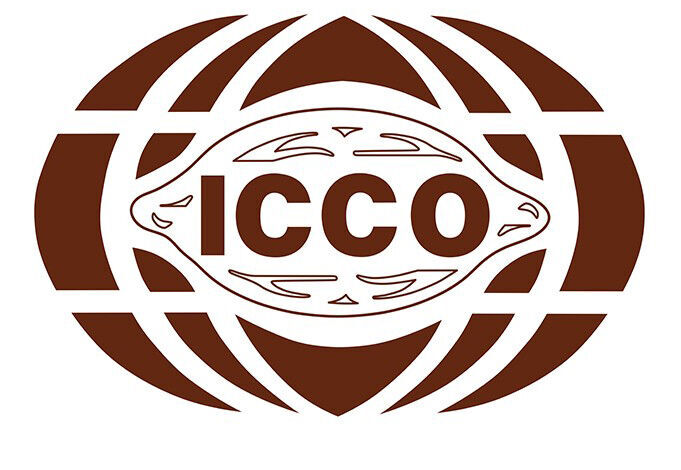Collaborative action is needed beyond Switzerland
The Cocoa Platform promotes dialogue with local authorities and organisations in the countries of origin of cocoa and coordinates its actions with like-minded national and international initiatives.
Key stakeholders from consumer and cocoa growing countries must take collective action to overcome the hurdles to a sustainable cocoa value chain. As the Brussels Declaration of the Fifth World Cocoa Conference (2024) states, "All stakeholders should seize the opportunity offered by the current situation of international prices to work together and adopt the clear goal that cocoa farmers achieve a living income."
The Cocoa Platform is therefore committed to working closely with all key stakeholders in the global cocoa industry. It is in dialogue with numerous national as well as international authorities, organisations and initiatives.
International Cocoa Organization (ICCO)

The International Cocoa Organization (ICCO) is an international organisation of both cocoa-producing and cocoa-consuming member countries. The ICCO was founded in 1973 to implement the first International Cocoa Agreement and is now based in Abidjan (Ivory Coast). The 7th International Cocoa Agreement, adopted in 2010, is currently in force. The ICCO's overarching goal is a sustainable world cocoa economy.
The International Cocoa Agreement of the ICCO was signed by Switzerland in 2010, and since then, Switzerland is a member of the ICCO as a non-European Union importing country. The Cocoa Platform is a member of the ICCO Consultative Board which has an advisory capacity to the ICCO's Council.
European Initiatives on Sustainable Cocoa (ISCOs)
The aim of the European Initiatives on Sustainable Cocoa is to coordinate their activities at both strategic and operational levels in order to make the best use of synergies and promote transnational knowledge sharing. Thus, the German Initiative on Sustainable Cocoa (GISCO), the Belgian Partnership Beyond Chocolate and the Swiss Platform for Sustainable Cocoa (SWISSCO) signed a Memorandum of Understanding in June 2020 to highlight their cooperation efforts. The MoU was further amended in January 2021 and September 2022 to include the Dutch Initiative on Sustainable Cocoa (DISCO/established in September 2020) and the French Initiative on Sustainable Cocoa (FRISCO/established in 2021).
GISCO, Germany
The German Initiative on Sustainable Cocoa (GISCO) is a multi-stakeholder initiative of the German Federal Government, the sweets and confectionary industry, the retail grocery trade, and civil society. Jointly, GISCO’s members aim to improve the livelihood of cocoa farmers and their families as well as to increase the proportion of cocoa certified by sustainability standards.
Beyond Chocolate, Belgium
Beyond Chocolate is the Partnership for a sustainable Belgian chocolate industry. Partners in the initiative are committed to ending deforestation, promoting education for future generations and providing a living income for cocoa growers.
DISCO, the Netherlands
The Dutch Initiative on Sustainable Cocoa (DISCO) is a partnership of companies, public sector organisations and civil society active in the Dutch cocoa and chocolate sector. The central aim of DISCO is to sustainably improve the living conditions of current and future cocoa farming families. The partners work to create sustainable solutions to livelihoods, child labour and deforestation in the cocoa sector.
FRISCO, France
The French Initiative on Sustainable Cocoa (FRISCO) is a public-private partnership that brings together stakeholders in the French cocoa and chocolate sector: the state, producers, traders, retailers, civil society organisations, research institutes and academic institutions. It works for a thriving and sustainable cocoa production system that benefits cocoa farmers and the entire supply chain. In the spirit of "shared responsibility", FRISCO pools the resources of all these actors to help make the cocoa sector more sustainable by 2030.
The overarching goal of the ISCOs' Memorandum of Understanding is to pool efforts to jointly address the most important issues facing the cocoa sector. In doing so, the initiatives have agreed on four common challenges:
- Contributing to a living income for cocoa farmers and their families.
- Ending cocoa-related deforestation and promoting sustainable reforestation and biodiversity.
- Ending abusive child labour and forced labour in the cocoa value chain
- Improve traceability and transparency in the cocoa value chain.
The European National Initiatives on Sustainable Cocoa (ISCOs) also made strides towards harmonising cocoa sustainability monitoring. The harmonised monitoring system for the ISCOs is operational. The Cocoa Platform is pleased to have contributed to the Joint ISCO Monitoring Brief.
Alliance on Living Income in Cocoa (ALICO)
The Berlin Declaration of the World Cocoa Conference 2018 states that "the cocoa sector will not be sustainable if farmers are not able to earn a living income". The Cocoa Platform is a partner of the Alliance on Living Income in Cocoa. Existing organizations and initiatives align to join forces and reach a systemic change to ensure that farmers earn a living income. Leveraging and strengthening existing structures, the alliance will promote policy dialogue, create efficiency by facilitating and aligning existing efforts, provide expertise and lead content-related discussions.
Ghana Cocoa Board (COCOBOD)
Ghana is the main producing country of cocoa beans for Switzerland. The Governments of Ghana and Switzerland signed a Memorandum of Understanding (MoU) in 2017 to strengthen their relations and to further promote social and economic development. The MoU was renewed in 2023 and includes a detailed work plan focusing on initiatives supported under Switzerland's Economic Development Cooperation. This encompasses active participation in steering and advisory committees, support in implementation, as well as engagement in scientific studies. The work plan is renewed annually at a joint committee meeting. Since the signing of the MoU, various exchange meetings have taken place. The Cocoa Platform supports several projects in Ghana and is involving COCOBOD with the aim of upscaling the approaches.

The COCOBOD is a government-controlled institution that purchases, markets and exports cocoa and cocoa products produced in Ghana, the world's second largest producer of the commodity. It initiates programs for disease and pest control and promotes scientific research aimed at improving the quality of cocoa.
